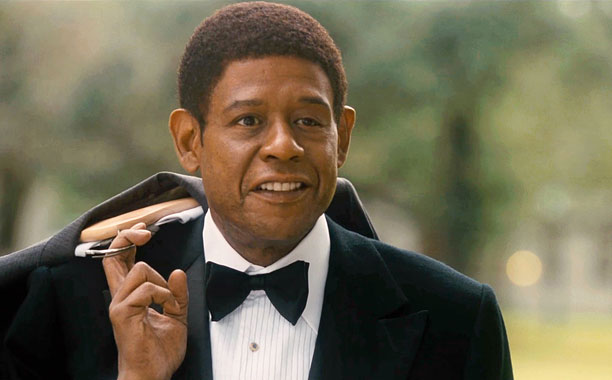Quentin Tarantino opined that Django Unchained was supposed to jumpstart a meaningful discussion of race in America. I never bought that line of reasoning and found the film – while accomplished on some levels – naïve or willfully ignorant about social context, emotional depth, and ideological cohesion.
Being a white, Southern woman is not a factor in my thinking about this. I felt (and feel) exactly the same way about Inglorious Basterds. This is a Jewish revenge story? Maybe some people feel this way about it, but I have yet to read or hear an informed, coherent, and compelling analysis of the film from this perspective that makes a persuasive case.
The cause is not lost, however. There is a new film that could be useful in expanding a meaningful dialogue on race.
On the surface, Lee Daniels’ film The Butler seems visually bold with a celebration of spectacle – though less indulgent, perhaps, than Tarantino – but his rich and frequently disturbing displays are juxtaposed with accomplished nuance and evocative quiet moments that offer a detailed exploration of African American experience that is lived in two worlds: white (public) and black (private).
Great performances abound (not the white actors playing key political figures, though Jane Fonda’s Nancy Reagan is an exception), but Forest Whitaker, Oprah Winfrey, David Oyelowo, and Elijah Kelley (in a small but indelible role) are standouts as a father, mother, and two son who come from very different physical and emotional places to form a family.
Whitaker’s Cecil Gaines is a remarkable performance. Gaines grows up on a farm in the Jim Crow South and watches a white man murder his father in the cotton field with impunity after raping his mother. The boy becomes a house worker and leaves as soon as he is old enough, eventually working in a hotel.
His skill at being invisible in a room and anticipating the wants and needs of white people earn him an opportunity to work at a hotel in Washington, D.C. and, eventually, the chance to work at the White House where he serves a number of presidents and has a privileged view, of sorts, on key moments in the Civil Rights Movement.
The film, which is based on an article about an actual White House butler, takes literary license to expand its historic scope by giving one of the butler’s sons (Oyelowo) something of a composite role at various milestones in the Civil Rights Movement and, later, the emerging Black Power Movement.
While this is a bit risky, Daniels pulls it off in The Butler by making the film a more expansive look at how what worked for Gaines as a strategy for surviving then for getting by and making a better life for his sons does not work for his son, who wants more. These are the big moments in the film, but that is only half the narrative.
The other half is just as compelling.
Cecil Gaines’ quiet dignity at work is always contrasted with his sense of humor in unguarded moments with his friends and family. Over time, he evolves. Eventually, he seeks higher wages for the black White House Employees who are paid less than whites. And, finally, he learns to merge his public and private selves when it makes sense – on his terms – for him to do so.
This is the story of a personal journey with much larger meaning; it is a narrative that focuses on black experience without telling the story through a white prism or even using white characters as a major framing device.
If you believe that the only way to overcome racism is for whites to divest themselves of the trappings of white privilege, then the first step is convincing whites that such privilege exists. Having this film in theaters at the same time as the 50th Anniversary of the March on Washington is fitting.
Films like The Butler can be important tools for that dawning awareness, but this movie is not overly didactic or polemical. It’s based on a great story, and The Butler is a fine film.
